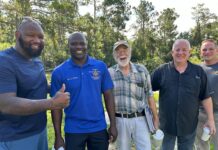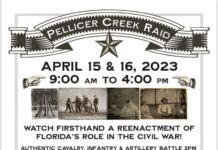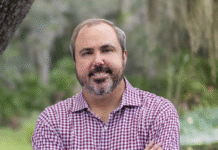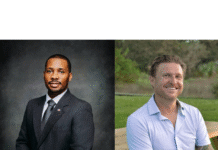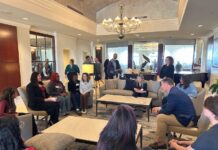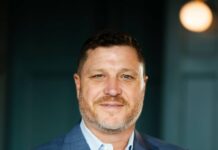Tell readers a bit about yourself and your professional background.
I’m a 1st generation American. My parents came to America from Trinidad & Tobago on work visas. I was born in Brooklyn and moved to Poinciana, Florida when I was about 2 years old. I attended K-12 in Poinciana and graduated High School at 17 years old. I was a varsity soccer player, cross country runner and multi-discipline state-qualifying athlete in Track & Field. I still enjoy running to this day as well as playing video games and musical instruments, especially the drums. Shortly after graduating High School, and after the 4 hurricanes of 2004, I joined the Air Force as a Security Forces Member for 10 years. During my time in the Air Force I held several positions to include supervising the law enforcement activities of the Air Force’s largest base in Europe and providing security for dignitaries ranging from Tom Cruise to the POTUS.
How did you get into emergency management?
It was a total accident actually. After I separated from the Air Force, I was perusing a BA in Psychology at American Military University in preparation to join the FBI. The last two classes of my degree program before my capstone were Psychology of Disaster and Psychology of Terrorism. These two classes opened me up to the world of Emergency Management and I never looked back. I completed my psychology degree and immediately enrolled in AMU’s Emergency and Disaster Management program. I completed my 2nd BA in a little over 11 months and started applying for jobs. I was able to take some of my experience in the military and apply it to this career field and was lucky enough to be offered a job with Flagler County as an Emergency Management Planner 3 years ago.
You were just the valedictorian for the Flagler County Leadership Academy’s second class of graduates. What did you do above and beyond to earn the honor, and were you surprised?
It remains my honest opinion that the only reason I was valedictorian is because no one else in my class wanted the responsibility of delivering a speech on behalf of the rest of the class. I was very surprised to be nominated by Jordan Butler, the person I myself was going to nominate for the honor. I was even more surprised when my other classmates echoed his sentiments of my nomination. It was a true honor to earn their respect in that capacity. Any one of my class members, especially the “famed” left side of the class consisting of Joe King, Jason Wheeler, Ashlee Ouellette and Jordan, could have been valedictorian. Every last one of my classmates are all-stars and I’m proud of the progress we all made personally and professionally.
How do you feel the leadership academy expanded your understanding of the role of a leader and what was the most meaningful thing you took away from the experience?
The academy helped open my eyes to the true extent of leadership. Leadership really is not just a position. It’s not something we earn from years of service. The true mark of a leader is someone who is truly willing to sacrifice for the sake of others. It’s lonely at the top and rightfully so because it takes a special person to be a true leader. You have to want to see others succeed, more than you want to see yourself succeed. As a result of learning this, I have refocused my life and career goals on helping others succeed.















